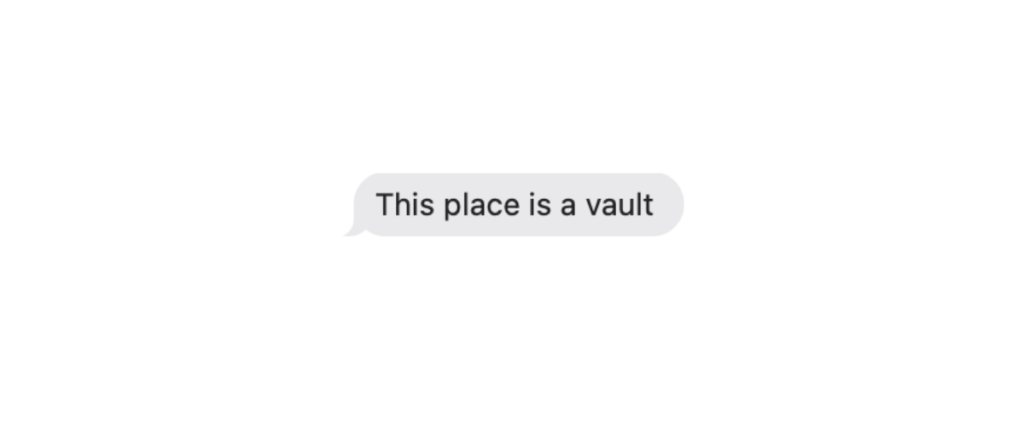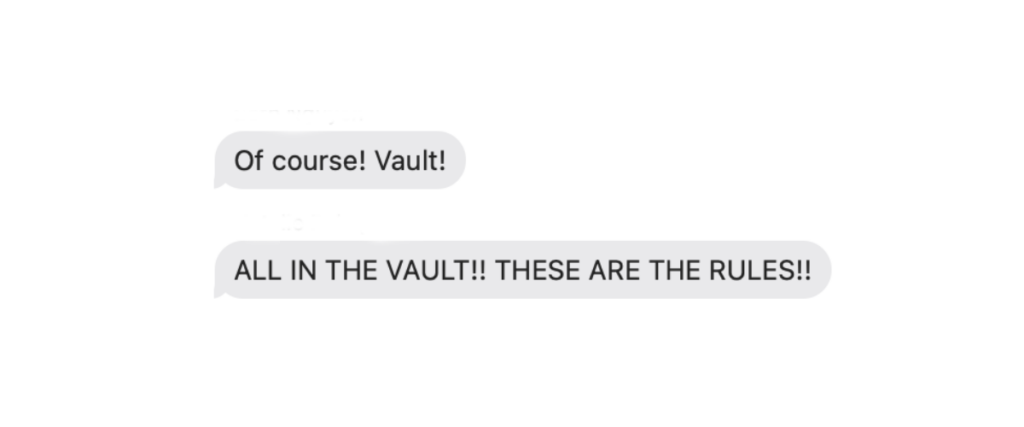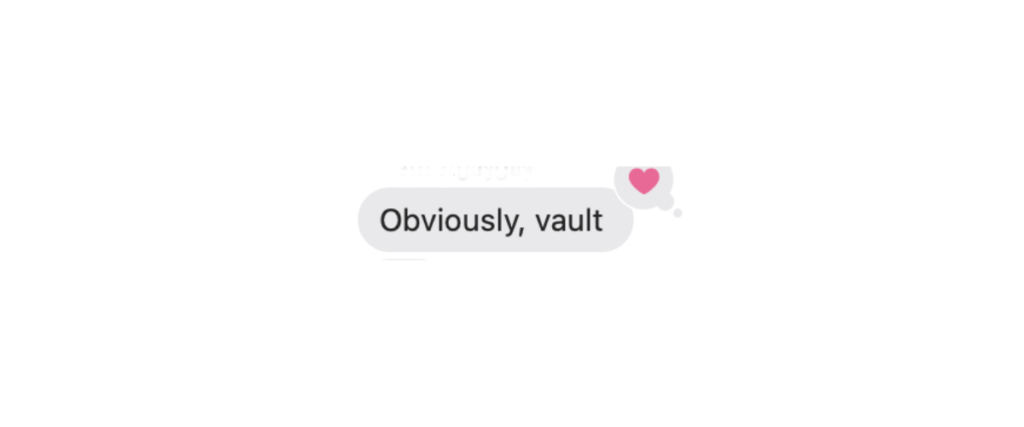Group Chat
With love to the friends who share humor, grief, gossip, daily happenings, deep understanding, strong editorial opinions, and—across the years—mentorship

In early March 2020, on my birthday, a presidential candidate I liked dropped out of the race. She—and because there were so few women running, you may be able to guess who she is—was not the only candidate I admired, but she was a candidate I admired for a very particular reason: her ability to meaningfully convey her mastery of information, her arguments, and her anger. I found her intensely sympathetic.
Three friends and I assembled, Avengers-style but via iMessage, to lament the loss, her loss, which felt like our loss too. We wrote sad, indignant, pissed-off blue messages. Weren’t the four of us, women in academia, fighting for purchase on a ladder that had been made for others? Weren’t we like her? We looked for ways to understand the ladder, and we looked for ways to dismantle it. I wanted to take the rungs apart and hand them out to everyone I knew. I wanted to make them into kindling. But in the candidate, I recognized a canny patience and strategic control, one I had often sought to deploy myself. In her announcement, her acknowledgment that she could not succeed, I also recognized the cost. It was one I had sometimes paid myself, one I dreamed of avoiding in the future, but certainly one that still awaited me.

What a shitty message to get on my birthday, I wrote. “(Not you guys. Her dropping out.)” Following exchanges with a friend who had family in Italy, as well as a reporter pal who had spent time in Wuhan, I had already started limiting my socializing. I spent my evenings on a stationary bike, head down, riding for hours as I worried about what lay ahead. The same night the candidate dropped out of the race, I hit a major personal milestone, but I told almost no one. How strange to be happy in our grief-stricken times! The world was narrowing like the garbage compactor on the Death Star. Still, the excitement had to go somewhere—so into the group chat I tentatively sent it. My friends cheered for me. It was the first of many such occasions. We had come together to mourn the professional loss of one of our heroes. But over the next few years, I found new role models in the three of them.
We are all writers. We live in four different states—three Midwestern, one Southern—and teach at four different universities. Two of us belong to BIPOC communities; three of us are part of diasporas. One of us specializes in writing about climate change as it relates to where she lives. One has navigated several institutions; another teaches at a private school. Still another teaches near where she grew up. At least two members of the chat probably do not get the Avengers reference above. Three of us have pets. One could probably compete on The Great British Bake Off. One is superb at thoughtfully confronting the problematic. One regularly teaches overseas. All three are distinctively stylish. (I dare not include myself in this number.) Two of us would probably eat passionfruit-flavored anything. We are not averse to celebrity and literary celebrity gossip. All four of us tend to have strong editorial opinions. In the blue streak of messages, we offer up wandering accounts of our days. In this way, we build camaraderie. Our lively thread also has the very useful and heartening side effect of showing me how people with good experience and character handle both problems and success.

How do we teach online? Are you quarantining your groceries? Yes, are you? Can I tell you about the ridiculous thing I did? Can I tell you about the ridiculous thing this person did to me? That seems racist. That’s totally racist! Is what they said outrageous? I’m not sure and I would love your take. It’s definitely outrageous! I can help you solve that problem. Are you kidding? Oh, I’m so sorry to hear that. Look at my cute kid! I am so, so tired. Wait until she gets out of her meeting and finds 800 notifications! LOL. We are old. But we look good! What do you think of this outfit? That story is classic sexism. How unoriginal. I have a weird injury. What happened? I took a COVID test. I’m craving snacks. Has the timer gone off yet? I’m always craving snacks. It’s negative! Did I tell you about this really good gummy candy? I made a cake and I think it turned out okay. You should be on Bake Off! We’re getting a dog! I’ve never had a dog! Can you believe this person? What are you reading? Look at this story! It’s so good! Oh my God, absolutely the best thing happened today. I wrote something and I don’t hate it! Does anyone have a minute to read this? How can I possibly do this? Does this seem like I fucked up? Should we drink wine on Zoom? Of course, you can do it, I don’t think it’s that bad but have you tried this?—yes, definitely. When are you free? Messages fly back and forth.

I have known one of the other chatters for thirteen years; I met another face to face a dozen years ago; I spent real, in-person time with the third for the first time at an overseas writing conference five years ago. Only one of the connections even began in person; in the other two cases, we were tethered to each other via social media for years before we ever laid eyes on each other. Our in-person relationships make our texting connection possible—and our texting relationship has expanded the universe of what we can address on the rare occasions that we see each other. Their advice and mentorship here is like Miracle Max’s miracle pill in The Princess Bride: “Chocolate makes it go down easier.” We commiserate, trade book covers, delight in beautiful lines we read, gossip, and exchange recipes, and when I wonder what I should do, I take the question to them without thinking twice. Whether the question is personal or professional, they are often my very first port of call. (I asked them their thoughts about this essay, of course.) It took me a long time to see this space as a space of mentorship, but that is one of the many things it is. Texting offers intimacy, but also distance and perspective. The group chat is a place where I feel free to talk, and also where I learn different ways to listen.
Perhaps most importantly, it is also a space in which people understand each other’s silence and grant each other grace. As the world became more cruel, the chat made room for the unpredictable, and the kindness it so often requires. In April 2021, when I began to feel severe effects of pandemic overuse in my hands and arms, my injuries began to compromise my ability to type, and therefore keep in touch with as many people. In many online spaces, the faucet of my words slowed to an occasional trickle. I struggled to maintain conversations and relationships, and sometimes lacked even the bandwidth to explain. In the group chat, though, the arc of what was happening must have been clear: the unspoken rules of what we had created made it possible for me to wander into the room of our conversation and just shriek. So I sent brief, sometimes near-nonsensical updates from the edges of waiting rooms and pain, and then, slowly, I got quieter and quieter and quieter. I worried about it, and I let the worry go. And then more recently, when I saw one of the members of the chat in person, I said simply: I’m sorry I can’t say more. I wish I could. It’s fine, she reassured me. It’s fine—we know.
And the thing is, they always do.
